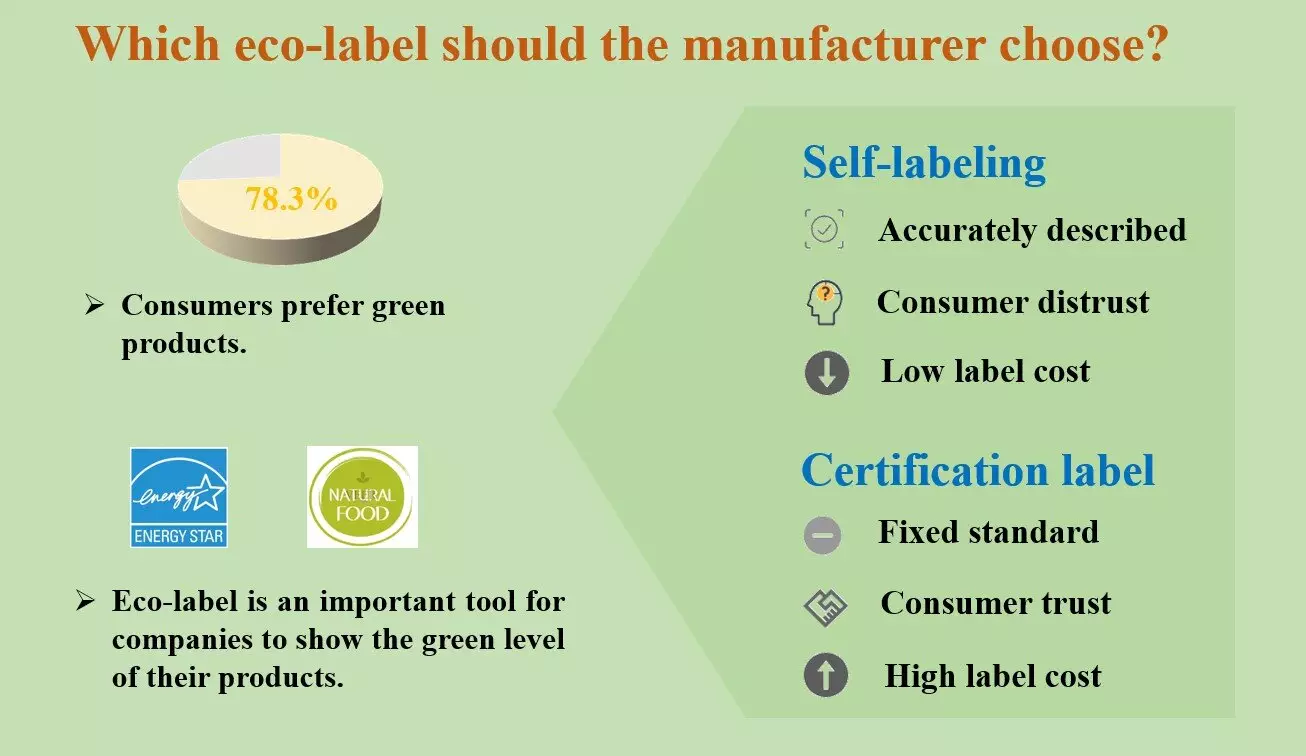The trend towards environmentally friendly products has gained significant traction in recent years, with an increasing number of consumers opting for green alternatives. According to the 2023 China Consumption Trend Report, 73.8% of customers now prioritize purchasing products that are eco-friendly.
Eco-labels play a crucial role in conveying the green attributes of products to consumers. These labels come in two main forms: certification labels and self-labeling. Certification labels are issued by third-party certification bodies, such as Energy Star and Organic Food, and are generally trusted by consumers. On the other hand, self-labeling, like Wal-Mart’s natural label, relies on the manufacturer’s self-declaration of a product’s green status. However, consumers often exhibit low trust in self-labeled products.
A research team led by Professor Gaoxiang Lou and Professor Yi-Ming Wei conducted a study on the impact of eco-labels in the green supply chain. The study involved a manufacturer and a supplier, with the supplier providing green raw materials and the manufacturer engaging in green manufacturing practices. The researchers discovered conflicting eco-label selection preferences between the two parties.
The study revealed that while the supplier typically prefers certification labels, the manufacturer tends to lean towards self-labeling. This conflicting preference poses challenges in ensuring social welfare, as the certification label may result in higher overall benefits. The researchers emphasized the need for enhanced coordination among supply chain members to address these conflicting preferences effectively.
In response to the findings, the researchers expanded the certification label level from a single level to multiple levels. For instance, the Cradle to Cradle Certified was divided into five levels. The results indicated that when consumer trust in self-labeling is low and the barriers to green investment are minimal, manufacturers are more inclined to choose multi-level certification labels. This underscores the significance of establishing a multi-level eco-label system.
An intriguing discovery made by the researchers was the potential negative impact of consumers’ green preferences on company profitability when single-level certification labels are adopted. As consumer green preferences increase, certification agencies may impose stricter standards, which could pose challenges for companies operating in the green supply chain.
The research highlights the complex dynamics of eco-label preferences in the green supply chain and underscores the importance of aligning the interests of all stakeholders to promote sustainable practices and enhance consumer trust in green products.


Leave a Reply